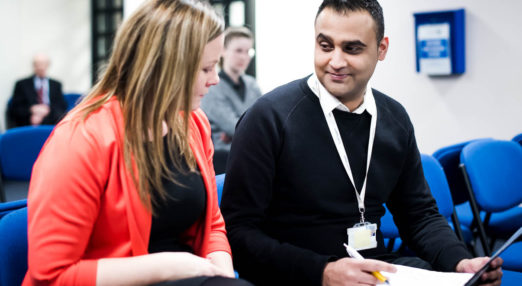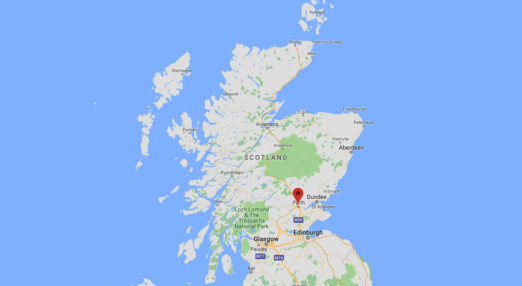Going to court FAQs
When you are required to attend court as a witness you may not know what to expect or what the rules in court are.
The following is a list of frequently asked questions which is hoped may help victims of crime to gain a better understanding of the court process and allow you to cope with what can be a traumatic and worrying experience.
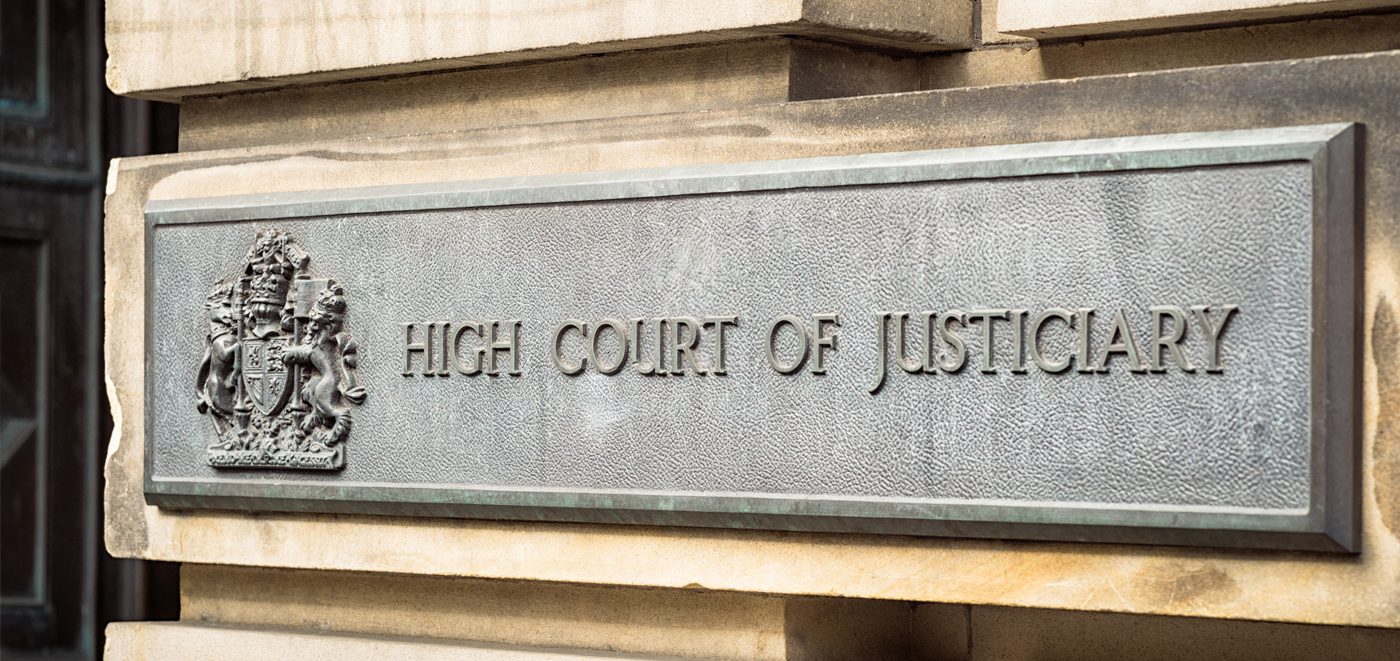
If you have a specific question that is not answered below, please contact your local Court Service office. If you are unsure of any of the legal words, the Judiciary of Scotland’s glossary is a good resource.
How do I contact the Procurator Fiscal regarding my case?
You will receive a citation with a date and Procurator Fiscal number printed on it. There is also a phone number on the citation, which you can use to contact the Procurator Fiscal’s office.
How do I tell who is who at court?
Judges preside over High Courts, sheriffs preside over Sheriff Courts and justices of the peace (JPs) hear cases of less serious offenses.
Court officers/Macers bring the judge or sheriff into the court and escort witnesses from the witness rooms into court.
The Procurator Fiscal decides whether there is enough evidence for prosecution and whether a case should go to court. The Procurator Fiscal office coordinates witnesses for the prosecution.
The ‘defence agent’ is the accused’s lawyer and coordinates witnesses for the defence.
Victim Support Scotland’s Court Service supports witnesses at court and helps to arrange special measures, organise court familiarisation visits and empower people to give the best evidence they can.
I have been asked to give evidence, what does this mean?
As a witness you play an essential part in a trial by attending court and letting the court know what you saw or heard.
Do I have to turn up at court if I get a citation?
Yes. As stated on the citation, if you fail to appear, a warrant may be taken out for your arrest. If you know beforehand that you cannot appear on the trial date i.e. due to a booked holiday or important medical appointment, please let the Procurator Fiscal’s office (or defence agent if you are a defence witness) know as soon as possible. They will decide if you can be excused from giving evidence.
Do I have to give a precognition statement?
Both the Procurator Fiscal and defence lawyer may ask for a ‘precognition statement’ prior to the trial. You are required to give such a statement but at your own convenience (in some cases it can be taken over the phone). If you refuse to give such a statement, the Procurator Fiscal or defence agent are entitled to request you give such a statement under oath in the court before the trial.
How long will I be at court?
There is no way of knowing how long you will have to wait. You may be at court a long time, even all day. You may want to bring a book, magazine or electronic device (tablet, Kindle, etc), to help pass the time. Occasionally you may have to return on another day if the trial is adjourned or postponed. If the case is being heard at a Sheriff and Jury trial or the High Court you may be required to attend over several days.
Do I need to take a full day off work?
There is no way of knowing how long you will be at court or when you will be called to give your evidence, so it is always a good idea to leave the whole day free.
Can I bring my children with me?
Courts do not have childcare facilities, so unless the child is a witness please try to arrange childcare cover. You may be able to claim back a limited amount of childcare expenses through the Procurator Fiscal’s office but contact them in advance of your court attendance.
Are children allowed in the courtroom?
Children who are 14 years of age and over are allowed to sit in the public gallery of the court, but children under 14 years of age must get express permission from the court to sit in on any proceedings and should be accompanied/supervised at all times.
How should I dress to come to court?
You should wear clothes that are comfortable. Most witnesses dress smartly. Do not turn up wearing football colours or clothing that may be deemed offensive to other court users. No hats are allowed to be worn in court, but religious head coverings are allowed.
Do all judges and sheriffs wear robes and wigs?
Court dress is determined by tradition and has evolved over the centuries.
In the High Court judges wear a red and white robe. In the Court of Session judges wear a crimson robe with darker red crosses on it. In the Sheriff Court a black gown is worn by sheriffs.
Wigs are normally worn throughout the process.
Robes and wigs are not usually worn in Justice of the Peace and Stipendiary Magistrate courts. It may also be agreed to dispense with court dress in proceedings involving children.
What if I am unwell and can’t attend court?
You need to inform the Procurator Fiscal in advance and supply a medical certificate and/or a letter from your doctor explaining that you are unwell. This is sometimes called a ‘soul and conscience’ letter.
What if I cannot attend because I’m on holiday?
You should send or email copies of any booking confirmation and details of the case you are involved in to the Procurator Fiscal.
How do I contact the Procurator Fiscal regarding my case?
You will receive a citation with a date and Procurator Fiscal number printed on it. There is also a phone number on the citation, which you can use to contact the Procurator Fiscal’s office.
What happens if I am late for court or break any of the court rules?
If you are going to be late for a court appearance, telephone the court, or your legal representative if you have one. Depending on the circumstances, there could be a penalty. A person who misses a court appearance, whether as a witness or an accused may have a warrant issued for his or her arrest.
What if I am on medication?
Please bring any medication to court with you, if you need to take it during the day. If you have any medical issues, which may affect you giving evidence, please let the Witness Service or court officer know as soon as you arrive at court and the information will be passed to the appropriate people.
What if I have special requirements?
Please try to inform the Procurator Fiscal or defence agent before the trial date. The Witness Service or a court officer may be able to assist on the day.
Can a family member/friend sit with me in the waiting room?
Yes, if there is enough space in the witness rooms. Please inform the Court Service or court officer that you are being accompanied when checking in.
Will there be toilet facilities available to me?
Most courts have toilets adjacent to the witness waiting rooms. Please check with your local Court Service office if you require further details.
Can I breastfeed in court?
Yes, facilities can be made available to you. In Scotland, it is an offence to stop anyone breastfeeding in a public place or public building.
Can I take something to drink with me when I go into the court to give my evidence?
No, but fresh water is available at the witness box.
Can I go for a cigarette while I am waiting?
There is a general no smoking policy for all Scottish courts, however some courts will allow you to leave the waiting room for such purposes, but you must always ask for permission before doing so. Please check with your local Court Service office for further details.
Can I go for tea/coffee and take it into the waiting room?
Some courts operate a tea/coffee bar or cafeteria where you can purchase refreshments and snacks. This varies from court to court. You will be able to take tea and coffee into the waiting rooms but not into the courtroom.
Can I stay in the court building over lunchtime?
This varies from court to court. Please check local arrangements before attending or contact the Court Service.
If both my partner and I are witnesses and only one of us has given evidence before lunch, will we be able to go for lunch together?
In most cases you will be able to go for lunch together but the witness who has given evidence will be warned by the court not to discuss the case. There may be occasions when, due to court issues, you should not lunch together. Be guided by the court information given to you at the time.
What if I am intimidated or threatened by anyone involved in the case at any time?
Intimidation of witnesses is a very serious offence, please inform police of any threats made. There are always police situated within the courts. Highlighting any intimidation issues prior to attending court can be done by contacting the Procurator Fiscal’s office or Court Service, who will inform the police. Please remember, by prior arrangement, victims and witnesses may be able to enter/leave by a side/rear door and sit in a separate waiting area if appropriate.
Will I see the accused in the waiting room?
The accused is not allowed in the waiting/witness rooms. If the accused does enter the rooms, please inform a member of staff situated within the court.
Do I have to sit with other witnesses?
In normal circumstances, yes, but if there is a problem, we can arrange the use of a room away from other witnesses, space permitting. Please speak to a Court Service office if you are concerned.
As a prosecution witness, will I need a lawyer?
No, the Procurator Fiscal acts for the prosecution (the Crown) in the public interest therefore you will not require a lawyer. Defence witnesses are cited by the accused’s lawyer and do not require a lawyer of their own.
Where can I park?
Please ensure that your car is parked in an area for free or long-term parking. You may be in court longer than anticipated and you may not be able to leave to top up your parking charges. Please note parking charges are not included in expenses.
What expenses can I claim?
You can claim expenses for travelling to and from the court and an allowance for meals. You cannot claim for parking.
How do I claim expenses?
Prosecution Witnesses – An expense claim form can be found on the back of the witness citation, which must be stamped by court staff and then handed in or posted to the Procurator Fiscal’s office for payment. This should be done as soon as possible but not necessarily on the day of the trial. Cash payments are only made in cases of genuine hardship or emergency. If you have lost your citation, go to the Procurator Fiscal’s office after giving evidence and you will be issued with a duplicate.
Defence Witnesses – If you are a defence witness you can claim from the defence lawyer who cited you, who will provide the necessary information.
What if I can’t afford expenses up front?
In some cases, the Procurator Fiscal (or defence agent) may issue travel vouchers in advance – please contact the appropriate office directly. If you are required to travel a long distance to get to the court, they may also be able to arrange travel tickets for you. Exceptional costs such as taxi fares, air travel and overnight accommodation must be approved by the Procurator Fiscal in advance.
How do I change my contact details?
You should write or email the Procurator Fiscal/defence agent, quoting the reference number of the case you are involved in.
Do I have to take the oath?
No. If you do not wish to swear to God, you may prefer to ‘affirm’, meaning you swear to tell the truth without any religious reference. If you wish to affirm please let the Court Service or court officer know when you arrive, and they will let the court know.
Does my address need to be read out in court?
If your address is the scene of the crime, it may need to be read out. If not, in most cases your address should be given as ‘care of the police’. If you have any concerns, please let the Court Service or court officer know in advance.
Do I need to stand to give my evidence?
In most cases you must stand to give your evidence. If you have a medical condition or some other valid reason that would make giving your evidence uncomfortable by standing, then you may be allowed to sit. Please advise the Court Service or a court officer on your arrival if you wish to request to be seated while giving your evidence.
Will the accused be in the courtroom?
The accused has the right to be in the court to hear all the evidence against them. As part of your evidence you could be asked to look round the courtroom to identify them.
How do I address the sheriff or judge?
For a male sheriff or judge, it should be ‘My Lord’ or ‘Sir’ and for a female sheriff or judge it should be ‘My Lady’ or ‘Ma’am’.
How do I address the Justice of the Peace?
For both male and female Justices of the Peace it should be ‘Your Honour’.
If, when being questioned, I don’t know something or can’t remember, what do I say?
The questions asked by the lawyers in court should help refresh your memory. Listen carefully, take your time to answer and say if you do not understand the question or do not know the answer. Speak slowly and clearly. Witnesses must tell the truth at all times.
Can I go back into the witness waiting room after finishing my evidence?
No, you may remain in court to hear the rest of the trial, remain within the court building or leave the court entirely, but you cannot return to the witness waiting room. If you have an issue and wish to wait until the end of the trial, please contact the Court Service who may be able to arrange a suitable place.
Do I have to wait for the verdict/outcome?
No, the judge/sheriff will inform you when you are free to go. If you wish to know the result you can contact the local Sheriff Clerk’s/Procurator Fiscal’s office the following day.
Can I see my statement?
Your statement is the information you gave the police at the time of the incident. Your statement is what you will be asked about in court.
In a summary case, which is held without a jury, you cannot see your statement.
In a solemn case, which is held before a judge or sheriff and jury, you may request to read your statement, however the fiscal office will decide whether this is appropriate.
Are there facilities in the court for the hard of hearing?
Some courts have a ‘loop’ system which can be used, but please contact the appropriate court to find out what is available to you before you attend for trial or as soon as you arrive at court.
English is not my first language. Can I speak in my native tongue?
Interpreters can be arranged if English is not your first language. This will be arranged by the Procurator Fiscal if you are a prosecution witness and by the defence agent if you are a defence witness. You can inform the Procurator Fiscal’s office prior to attending court if you require an interpreter.
What do I do if I need the toilet while giving my evidence?
If you feel you need the toilet, feel unwell or have any other issue while giving evidence, please inform the judge/sheriff or justice of the peace, who will be understanding of any genuine problem.
What happens if I break the rules at court or get angry?
Misbehaviour in court is likely to result in a warning or reprimand from the judge or sheriff. A more serious breach of court protocol may amount to the offence of contempt of court, which can be punished by a fine or even imprisonment.
If my answer to a question involves swear words or some other offensive words or remarks, will I be allowed to write my answer rather than for me to speak the actual words?
In most cases you will be asked to speak the actual words. In extreme cases you may, with permission of the court, be allowed to write your answer, but this is very unlikely.
I have taken photographs of my injuries on my mobile telephone. Can I show the photographs when I attend court to give evidence?
No, all evidence must be prepared by the Procurator Fiscal and agreed by all parties in advance of the trial. If you have photographs which you think may be helpful during a trial, please hand them to the Procurator Fiscal as far in advance of any trial as you can.
If, after being found guilty the accused is placed on deferred sentence, will any bail conditions that were in place still be valid?
Normally bail conditions will still be valid but this should be confirmed by contacting the Procurator Fiscal or Sheriff Clerk’s office.
How do I get back property taken during the investigation?
Property is returned by the police once the case is finished and the appeal period has passed, which is usually around six to eight weeks.
Are courts always open to the public?
All courts are public buildings, and almost every court hearing will be open to anyone, on the principle that justice should be seen to be done. In a ‘closed court’, the public is excluded. There are limited circumstances in which this may occur. It may be in order to protect vulnerable witnesses (such as where a child or the complainer of a sexual offence is giving evidence) or to ensure confidential information does not become public.
Will journalists be at the court?
Journalists are generally allowed to attend court, even if the courtroom is closed to others. However, publication of material may be restricted in certain cases and breach of such restrictions would be considered as contempt of court. Restrictions will only be imposed when it is absolutely necessary, for example, to ensure that a case or future proceedings are not prejudiced in any way by the publication of certain information. In cases of a sexual nature, e.g. rape, the media will not identify the victim/witness though occasionally that person may decide to waive their right to anonymity.
Can I take photographs in the court?
Photography, filming and audio recording are not permitted in court without prior approval, including the consent of the judge and all parties to the case. Journalists may obtain permission if it is felt to be in the public interest.

